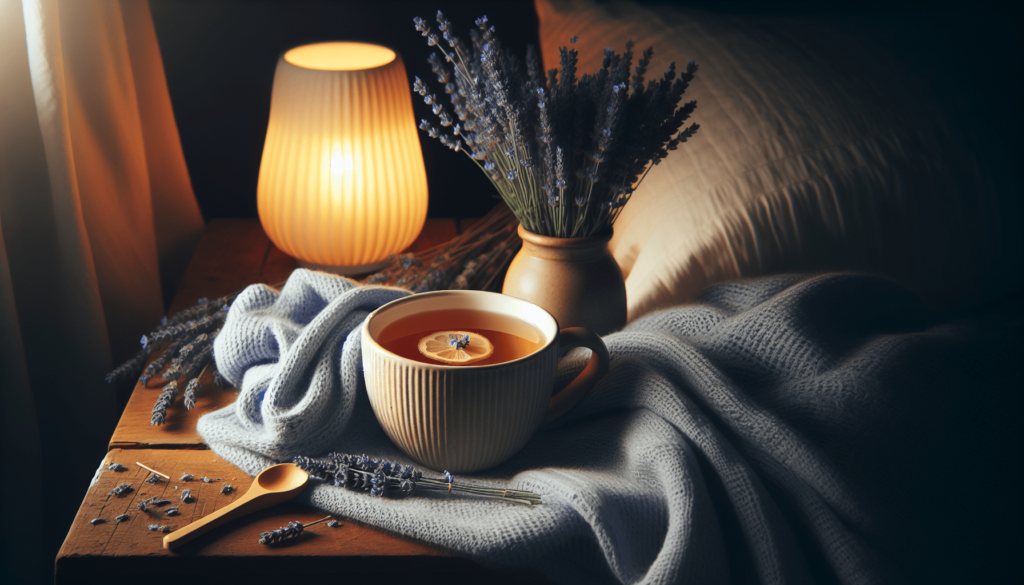Are you struggling to get a good night’s sleep? Insomnia can be a frustrating and debilitating issue that affects many people. If you’re tired of tossing and turning all night, you may be interested in exploring holistic approaches to combatting insomnia. From dietary changes to relaxation techniques, there are a variety of natural methods that can help you improve your sleep quality. Let’s dive into some holistic approaches that you can incorporate into your bedtime routine to promote better sleep.
Understanding Insomnia
Before we delve into holistic approaches to combatting insomnia, it’s important to first understand what insomnia is. Insomnia is a common sleep disorder that can make it difficult to fall asleep, stay asleep, or both. This can lead to feelings of fatigue, irritability, and difficulty concentrating during the day. Insomnia can be caused by a variety of factors, including stress, anxiety, poor sleep habits, and certain medical conditions. By addressing the underlying causes of your insomnia, you can work towards improving your sleep quality and overall well-being.
What Causes Insomnia?
There are several potential causes of insomnia, including:
- Stress and anxiety: Feelings of stress and anxiety can make it difficult to relax and fall asleep.
- Poor sleep habits: Irregular sleep schedules, excessive screen time before bed, and other poor sleep habits can disrupt your body’s natural sleep-wake cycle.
- Medical conditions: Certain medical conditions, such as chronic pain, asthma, and acid reflux, can contribute to insomnia.
- Medications: Some medications, such as certain antidepressants, stimulants, and blood pressure medications, can interfere with sleep.
- Lifestyle factors: Poor diet, lack of exercise, and excessive caffeine or alcohol consumption can all impact your sleep quality.
By identifying and addressing the underlying causes of your insomnia, you can take steps towards improving your sleep quality and overall well-being.

Holistic Approaches to Combatting Insomnia
When it comes to combatting insomnia, taking a holistic approach can be highly effective. Holistic approaches focus on treating the whole person, including their physical, mental, and emotional well-being. By incorporating holistic practices into your bedtime routine, you can work towards improving your sleep quality in a natural and sustainable way.
Mindfulness Meditation
Mindfulness meditation is a practice that involves focusing your attention on the present moment and accepting it without judgment. This can help you relax, reduce stress and anxiety, and promote better sleep. By practicing mindfulness meditation for just a few minutes before bed, you can prepare your mind and body for sleep.
Dietary Changes
Your diet can have a significant impact on your sleep quality. Some foods and drinks, such as caffeine, alcohol, and sugary snacks, can interfere with your ability to fall asleep and stay asleep. By making dietary changes, such as avoiding caffeine and alcohol in the evening, and incorporating more sleep-friendly foods, such as whole grains, fruits, and vegetables, into your diet, you can improve your sleep quality.
Herbal Remedies
There are several herbal remedies that have been used for centuries to promote relaxation and improve sleep quality. Some of the most popular herbal remedies for insomnia include chamomile, valerian root, and lavender. These herbs can be taken in various forms, such as teas, tinctures, or supplements, to help you relax and unwind before bed.
Acupuncture
Acupuncture is a traditional Chinese medicine practice that involves inserting thin needles into specific points on the body to promote healing and balance. Acupuncture has been shown to be effective in treating a variety of health conditions, including insomnia. By seeking out a qualified acupuncturist, you can receive personalized treatments that can help you improve your sleep quality and overall well-being.
Aromatherapy
Aromatherapy involves using essential oils extracted from plants to promote relaxation and improve sleep quality. Some of the most popular essential oils for insomnia include lavender, chamomile, and cedarwood. By diffusing these oils in your bedroom, applying them to your skin, or adding them to a warm bath before bed, you can create a calming and soothing environment that can help you drift off to sleep.
Yoga
Yoga is a gentle form of exercise that combines physical postures, breathing techniques, and meditation to promote relaxation and reduce stress. Practicing yoga before bed can help you release tension, quiet your mind, and prepare your body for sleep. By incorporating yoga into your bedtime routine, you can promote better sleep quality and overall well-being.
Cognitive Behavioral Therapy
Cognitive behavioral therapy (CBT) is a type of therapy that focuses on changing negative thought patterns and behaviors that can contribute to insomnia. CBT for insomnia typically involves identifying and challenging negative thoughts about sleep, developing healthy sleep habits, and practicing relaxation techniques. By working with a trained therapist, you can learn how to overcome insomnia and improve your sleep quality.

Creating a Bedtime Routine
In addition to incorporating holistic approaches into your bedtime routine, it’s important to establish healthy sleep habits that can promote better sleep quality. Creating a bedtime routine can help signal to your body that it’s time to wind down and prepare for sleep. Here are some tips for creating a bedtime routine that can help you overcome insomnia:
- Establish a consistent sleep schedule: Go to bed and wake up at the same time every day, even on weekends.
- Create a relaxing bedtime routine: Take a warm bath, read a book, or practice mindfulness meditation before bed.
- Create a sleep-friendly environment: Keep your bedroom dark, quiet, and cool to promote restful sleep.
- Limit screen time: Avoid screens, such as phones, tablets, and computers, at least an hour before bed.
- Avoid caffeine and alcohol: Limit your consumption of caffeine and alcohol, especially in the evening.
- Exercise regularly: Engage in regular physical activity during the day to promote better sleep at night.
By following these tips and incorporating holistic approaches into your bedtime routine, you can work towards improving your sleep quality and overcoming insomnia in a natural and sustainable way.
Final Thoughts
Insomnia can be a frustrating and debilitating issue that can impact your overall well-being. By taking a holistic approach to combatting insomnia, you can address the underlying causes of your sleep disturbances and work towards improving your sleep quality in a natural and sustainable way. From mindfulness meditation to dietary changes to herbal remedies, there are a variety of holistic practices that can help you relax, reduce stress, and promote better sleep. By incorporating these practices into your bedtime routine and establishing healthy sleep habits, you can create a peaceful and restful environment that can help you drift off to sleep and wake up feeling refreshed and rejuvenated. Remember, it’s important to consult with your healthcare provider before making any significant changes to your bedtime routine or trying new holistic approaches to combatting insomnia. With patience, commitment, and consistency, you can overcome insomnia and improve your sleep quality for the long term.

